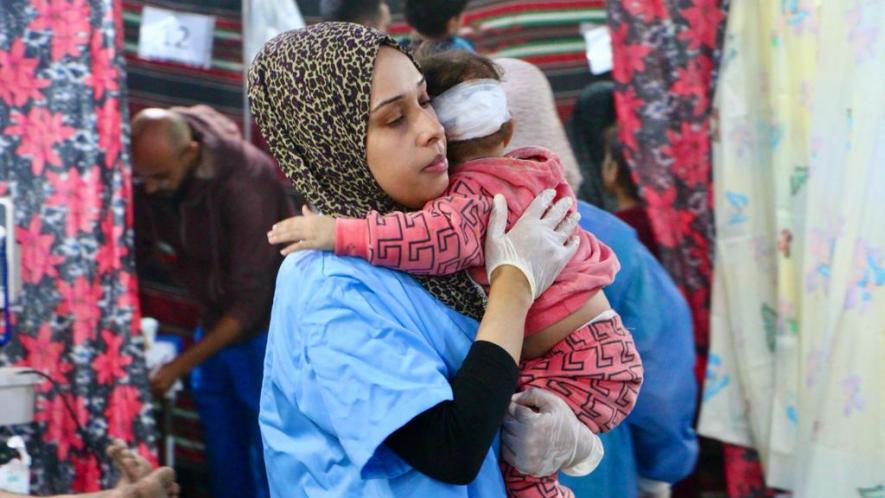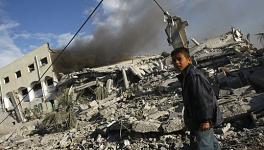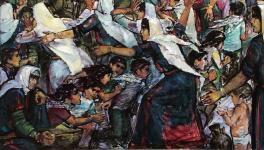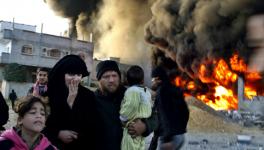Women in Gaza Remain Among the Most Impacted by War

As the world celebrated International Working Women’s Day on March 8, the Palestinian Central Bureau of Statistics (PCBS) reported that Israel had killed at least 9,000 women in Gaza since the beginning of its brutal war on October 7. That equals 63 women killed each day, of whom 37 were mothers. Thousands more have been injured: the PCBS reported that 75% of the wounded in Gaza since October 7 were women.
In addition to the horrendous death toll and injuries, women and girls are the ones shouldering the bulk of the burden of Israeli attacks. In the aftermath of destruction of water and sanitation infrastructure all over Gaza, overcrowding in camps in the southern part of the region has pushed women into living conditions last seen a century ago, Islamic Relief said in a statement published ahead of March 8.
Many women and girls are only able to wash once every 10-14 days, given the number of people in camps and number of showers available. Essential sanitary supplies, including menstrual pads, are either nowhere to be found or extremely expensive. This is causing women to use alternative materials, including tent scraps, or wear the same pads for a prolonged period of time, increasing risks of infections.
Pregnant women and mothers of newborns face particular dangers. Over 50,000 women are pregnant in Gaza, with approximately 180 births taking place every day. But the health facilities to facilitate births and provide postnatal care to women have been razed to the ground. Only a handful of hospitals are still able to provide at least partial maternity services, but even those, like the Al-Awda Hospital in northern Gaza, are exposed to risks of bombardments and shelling.
“I was in labor, and all I could hear was the warplanes roaring overhead, the shelling. There was fear everywhere,” a woman in Gaza told Oxfam.
Israeli targeting of hospitals and health centers has pushed women to give birth in tents or return to overcrowded tents shortly after giving birth – often also after delivering by C-section – again increasing risks of infections and complications. Pregnant women in Gaza are currently under so much stress that there has been an increase in premature births and a 300% surge in miscarriages.
Those whose children survive delivery then have to deal with the acute shortage of food. Famine will certainly devastate Gaza in case enough aid is not let in, and the effects of malnutrition are already widespread among the people in Gaza. Hunger has reduced new mothers’ ability to initiate breastfeeding. Women who succeed to breastfeed have low milk production, as physician Hossam Abu Safiya told ActionAid. “This is related to the mother’s nutrition. Most of the children’s sizes and weights are small,” he said.
There is no way of supplementing breast milk with formula, as prices of baby formula have followed the same trends as those of sanitary products and became prohibitively expensive. The combination of being unable to breastfeed or provide formula for babies is driving mothers to “resort to insufficient or even unsafe alternatives to breastfeeding their children,” the PCBS concluded.
Adults in families often forgo eating themselves as they attempt to secure meals for children. The practice is present among both women and men, but in 95% of the cases, it is women skipping meals to feed children. According to the United Nations, mothers “are the ones who eat last, less, and the least.”
Get the latest reports & analysis with people's perspective on Protests, movements & deep analytical videos, discussions of the current affairs in your Telegram app. Subscribe to NewsClick's Telegram channel & get Real-Time updates on stories, as they get published on our website.
























